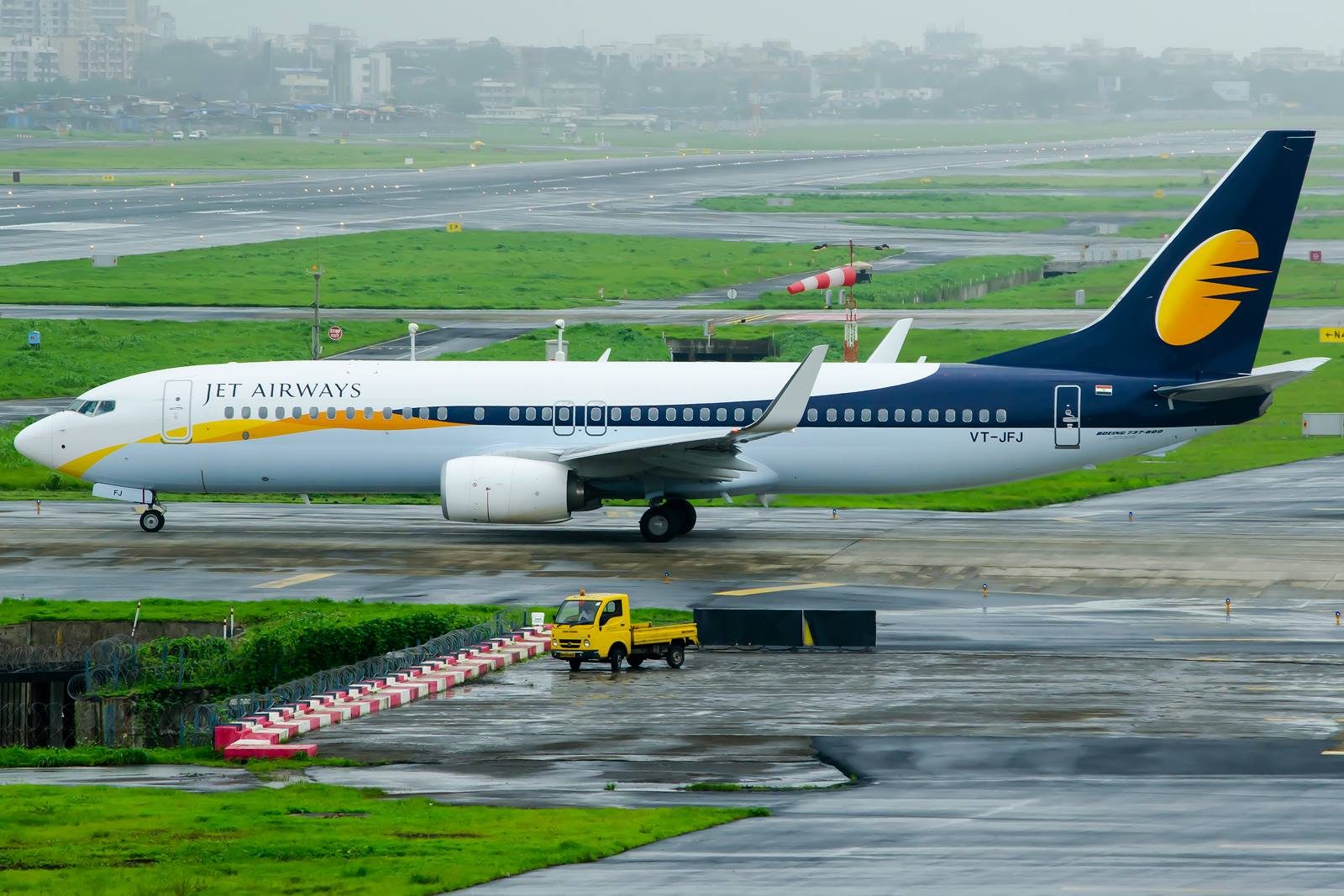
How long can Jet Airways carry on its charade of being a functioning airline? Earlier today, the airline announced it had been forced to ground four more planes because it has not kept up with paying loans to aircraft lessors. The announcement has become a weekly and on some occasions daily occurrence. It brings the total amount of grounded aircraft to 41 – or over a third of its fleet which totals 124.
(Update 19/03/2019: the airline has since grounded a further 10 aircraft and India’s aviation authorities says Jet Airways is only currently operating a third of its fleet).
Some aircraft lessors have become so despondent that Jet Airways may ever recover are said to be looking to fly their aircraft out of India. The first few planes were grounded late last year but negotiations on a potential rescue bid have now been dragging on for months. The airline has been forced to cancel hundreds of flights with seemingly no end in sight.
Jet Airways is India’s second-largest airline but suggestions that it is too big too fail may prove very misguided. The airline is drowning in over $1 billion of debt and has been defaulting on loans, failing to pay its suppliers and even delaying staff salaries for months on end. One pilot group has even made an official complaint to the Indian government in an attempt to force Jet’s hand.
There are hopes that a rescue bid between the State Bank of India and equity investor Etihad Airways might be agreed in little more than a week. The bailout will hinge on Etihad Airways increasing its stake in the airline, while Jet’s founder Naresh Goyal will be forced to reduce his stake and in turn cede control of the airline that he created over 25 years ago.
Etihad Airways first acquired a minority 24% stake of Jet Airways back in 2013 for $379 million – it was part of Etihad’s then strategy of taking equity investments in struggling airlines in order to build its own network. Etihad has already jettisoned its stakes in Air Berlin and bankrupt Italian airline Alitalia after the strategy spectacularly failed – leaving the Abu Dhabi-based airline with a loss of nearly $2 billion in 2016.
There was even speculation early last year that Etihad planned to sell its stake in Jet Airways, although that rumour was quickly denied by both Etihad and Jet Airways. Since then, we’ve learned that Etihad has already agreed in principle to raise its stake in Jet to 49% – the maximum it can acquire due to India’s regulations on foreign investment.
Cash-strapped Jet Airways has been in debt for years, although it blames the current situation on more recent events.
“In the last year the aviation industry has experienced extraordinary headwinds and challenges,” the airline recently noted. “Rising oil prices, a depreciating rupee and market saturation, among other things, have combined to critically impact the civil aviation sector as a whole.”
Etihad Airways has remained remarkably tight-lipped on the situation, although Etihad’s chief executive, Tony Douglas did recently put his name on a joint press release signalling a commitment to the embattled carrier. For its part, Etihad has its own problems to contend with – the carrier reported another heavy year of losses in 2018 with a loss of $1.28 billion.
India has traditionally been an incredibly important market for Middle East-based airlines like Etihad, Emirates and Gulf Air but increasing its stake in Jet doesn’t necessarily chime with Etihad’s new strategy of focusing on inbound tourism for its home market.
Interestingly, Qatar Airways wants to increase its presence in India with an investment of its own and was eyeing up Jet Airways. The chief executive of the Qatari carrier, Akbar Al Baker, however, ruled out acquiring a stake in Jet Airways because it is part “owned by our adversary” – referring to the UAE’s blockade of Qatar alongside Saudi Arabia, Bahrain and Egypt.
State-owned Air India is in a similar situation to Jet Airways but it at least has the backing of the government – an attempt by the Modi regime to offload the carrier to a private investor was a non-starter after it failed to attract a single offer.
Quite frankly, it’s difficult to see how Jet Airways is going to recover at this point. Whatever happens, it’s going to be an uphill battle and as it stands the Indian aviation market is so fiercely competitive that none of its rivals are making money either.
Mateusz Maszczynski honed his skills as an international flight attendant at the most prominent airline in the Middle East and has been flying ever since... most recently for a well known European airline. Matt is passionate about the aviation industry and has become an expert in passenger experience and human-centric stories. Always keeping an ear close to the ground, Matt's industry insights, analysis and news coverage is frequently relied upon by some of the biggest names in journalism.







